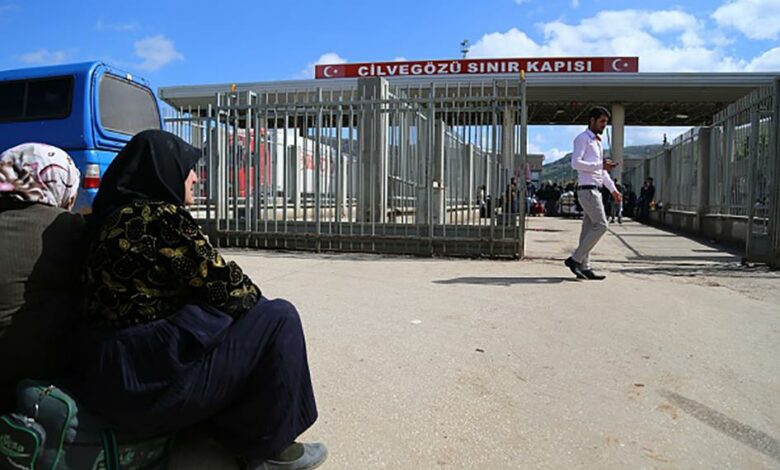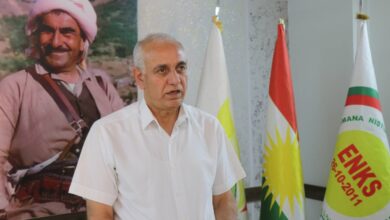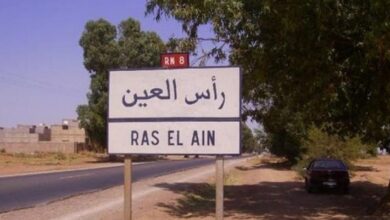
Turkey: Syrians Pushed Back at the Border
(Istanbul) – Turkey has all but closed its borders to Syrian asylum seekers and is summarily pushing back Syrians detected as they try to cross, Human Rights Watch said today. Syrians described Turkish border guards intercepting them at or near the border, in some cases beating them, and pushing them and dozens of others back into Syria or detaining and then summarily expelling them along with hundreds of others.
During the second half of October 2015, Human Rights Watch interviewed 51 Syrians in Turkey who had fled airstrikes and other violence in Syria. All said it was common knowledge among Syrians that they could only enter Turkey using smugglers. They described men, women, and terrified children trying to clamber at smuggler crossings across steep terrain at night for many hours surrounded by gunfire.
“Turkey’s border closure is forcing pregnant women, children, the elderly, the sick, and the injured to run the gantlet of Turkish border officials to escape the horrors of Syria’s war,” said Gerry Simpson, senior refugee researcher at Human Rights Watch. “Turkey has generously hosted Syrians and is entitled to closely control its borders for security reasons, but it should not be forcing asylum seekers back to a war zone.”
As of mid-November, Turkey had registered almost 2,200,000 Syrians, of whom about 250,000 live in 25 camps managed by the Turkish authorities. In September, Turkey said it had spent US$7.6 billion on assisting Syrian refugees since 2011. Turkey deserves credit and support for hosting these refugees, but is obliged to keep its borders open to people seeking asylum, Human Rights Watch said.
Turkey closed its last two official border-crossing points to almost all Syrians in early March, only allowing some people with urgent medical needs to cross. Syrians have continued to reach Turkey through smuggling routes. However, according to sources in southern Turkey with extensive knowledge of the border areas, Turkey has stepped up enforcement measures at unofficial border crossing points as well since the July 20 attackin the Turkish border town of Suruç.
Many interviewees told Human Rights Watch that the intensified Russia-Syrian airstrikes in Aleppo and Idlib since September finally forced them to leave Syria. They also described extreme poverty, lack of electricity and clean water, limited aid and poor medical care due to a lack of qualified staff, and overwhelmed medical facilities.
Since the border enforcement increased, Human Rights Watch has only been able to find one location – to the southeast of Antakya – where Syrians have continued to cross in significant numbers with smugglers at night. Almost all of those interviewed said it was common knowledge in their home areas that it was the best chance they had of crossing into Turkey because the hilly terrain makes it harder for the Turkish authorities to detect them than in the flat plain border areas further north and east.
They said that hundreds – and on some days, thousands – of Syrians were amassed in the area, waiting to cross by night. Many said they had to wait for up to a week before smugglers told them it was safe to try.
Interviewees said groups scattered when they heard border guards shooting, resulting in separation of relatives, including children from their parents. They also described how difficult it was to cross the hilly terrain in the dark. In some cases, elderly people fell down steep inclines. One woman said she saw an old man die after such a fall. Some groups used women’s veils to create makeshift ropes to pull women and children up particularly steep hills. Interviewees said they had told their vulnerable relatives back home to stay in Syria because the crossing would be too difficult.
We tried to cross into Turkey just after dark but soon after we crossed the fence Turkish police found us. They walked us to a group of about 50 other Syrians they had already caught. Then they took all of us to a military base on a hill about 20 minutes’ walk away. There were already about 200 other Syrians there including lots of women and children. Some of them told us they had been stopped trying to cross the border too. They registered all our names and they kept us there all night. The next day they took all of us, about 250 people, back to the border and told us to go back to Syria.
Human Rights Watch spoke with Syrians pushed back to Syria between August and October near Turkey’s official Bab al-Hawa and Bab al-Salama border crossing points. One man tried to cross with his family and about 20 other Syrians near Bab al-Hawa on around October 10, but said that Turkish border guards intercepted his group, beat him and some of the other men on the head and torso, took them to a nearby military base, and then returned them to Syria.
Another man who attempted to cross near the Bab al-Salama crossing in mid-August said Turkish border guards intercepted his group of 20 just after they had crossed into Turkey and pushed them back across the barbed wire fence into Syria.
Four people said Turkish border guards beat them shortly after intercepting them before returning them to Syria. A Syrian man from Dar`a, who crossed into Turkey on October 17, said:
I crossed into Turkey late at night with a smuggler and a group of about 20 others. We walked for about half-an-hour, stopping many times when we heard gunshots. Then we heard shouting in Turkish and shooting close by and we all panicked and ran in lots of different directions. I couldn’t run because I was helping a man who had been injured in an airstrike in Syria and who couldn’t run away. The police caught most of us. One of the guards hit me on the back of my head and in my ribs with the butt of his rifle and I fell over and started to bleed. Then another guard kicked me in the head and broke my glasses. It hurt so much I vomited. I don’t know why they attacked me. Maybe they thought I was a smuggler? Then they took us back to the border, pointed their guns at us, and shouted at us in Turkish. We crossed back to Syria.
Three people said they were separated from relatives during the crossing when groups scattered after hearing gunshots close by.
A 34-year-old Syrian woman from Dar’a who crossed into Turkey on October 15 said that she had spent the previous three weeks travelling with her father, husband, five daughters, and nephew through Syria to get to the Turkish border. She described what happened when her group finally crossed two nights earlier:
It was us and another 20 people and a smuggler. Then we heard lots of shooting and we got split up, running in different directions. I lost my husband and five children and have no idea where they are now. My father and nephew stayed with me and we walked for many more hours until we reached a Turkish village. Other people in my group also lost their relatives and all of us have no idea how to find them now.
Human Rights Watch visited the Turkish side of the border where people cross. The Syrian village on the other side is only a few kilometers away. However, Syrians making the crossing said the smugglers took them on circuitous routes for up to 12 hours to avoid Turkish border guards. Many described the ordeal faced by the elderly, pregnant women, young children, and people injured in Syria as they navigated the hilly terrain in the dark. Two people said that elderly men fell down the steep inclines and were left behind as smugglers insisted that helping them would risk exposing groups to Turkish border guards.
A 40-year-old man from Aleppo fleeing Russian airstrikes that killed his brother said he crossed into Turkey with his wife and three children on October 19:
Two smugglers took our group of about 50 people up and down many hills, all through the night. We heard a lot of dogs barking and shooting and we were so frightened of getting caught. The children were crying most of the time. Sometimes it was so steep, we had to use the women’s veils to make ropes so we could pull children and some women up the steepest hills and rocks. It was very difficult and exhausting.
Turkey’s Border Closure with Syria
Despite sporadic border closures, in 2014 Syrians fleeing the conflict continued to enter Turkey with or without identity documents through official border crossing points. However, on January 1, 2015, the Turkish authorities introduced new rules requiring Syrians to present valid travel documents to enter Turkey.
Until early March, Syrians crossed through the only two official border crossing points with Syria still open at that time, the Cilvegözü/Bab al-Hawa crossing near Reyhanlı, about 30 kilometers east of Antakya, and the Öncüpınar/Bab al-Salama crossing near Kilis, about 50 kilometers southeast of Gaziantep. On March 9, the Turkish authorities announced they were closing both crossing points and that only aid trucks and authorized traders could cross. As of mid-November, they had still not re-opened, according to nongovernmental agencies in Turkey close to the Syrian border.
According to sources in Turkey with extensive knowledge of the border areas, since then Turkey has allowed only two categories of people to enter the country through the two crossing points: gravely injured Syrians who cannot be treated in Syria and Syrians registered with Turkey’s emergency relief agency who have been given special permission to go briefly to Syria before returning to Turkey.
One of the Syrians interviewed said that when he arrived at the Bab al-Hawa border crossing on October 18, he found thousands of other Syrians there who had been stuck at the border for weeks. They said the Turkish authorities told them that the only Syrians allowed to cross were those already registered in Turkey who had been allowed to temporarily return to Syria to celebrate the festival of Eid al-Adha (the feast of the sacrifice).
Human Rights Watch said that although almost 25,000 people, most of them Syrians, fleeing fierce fighting in the border town of Tal Abyad entered Turkey in mid-June through or near the Akçakale border crossing, 50 kilometers south of Urfa, they had been forced tobreak through Turkey’s closed border fence after Turkish security forces pushed them backwith warning shots and water cannons.
Sources with knowledge of the situation in border areas in southern Turkey told Human Rights Watch that until July, Syrians continued to cross with smugglers into Turkey, mostly through mountainous border regions north and southeast of Antakya, which are harder to police than the flatter border areas to the east. Smugglers told Human Rights Watch that some of the border areas had very few border guards while in other areas border guards often turned a blind eye to people crossing at night.
However, on July 22, two days after a suicide bombing by an individual trained by the extremist group Islamic State (also known as ISIS) killed 32 people in the Turkish border town of Suruç, Turkey announced it would take additional steps to secure its 822 kilometer border with Syria, including by building a 150-kilometer wall, reinforcing wire fencing and digging a 365-kilometer trench. The October 10 double suicide bombing by individuals associated with ISIS, which killed 102 people assembled for a peace rally in the capital, has deepened concerns about the impact of the Syrian conflict within Turkey.
Since the end of July, Turkish border guards have increasingly prevented Syrians from crossing into Turkey which, sources knowledgeable about the border area said, has meant that most Syrians now cross through one informal crossing point that remains hard to police.
Turkey continues to advocate creating a so-called safe zone inside Syria to which, it contends, it could return Syrian refugees.
Syrians Flee Airstrikes and Destitution
Before Syrians reached Turkey’s closed border in October, many had already faced threats to their lives and tremendous hardship. Ten of the people Human Rights Watch interviewed described the violence they faced and extremely difficult conditions in Syria, including the constant fear of living under air attack, and lack of food and aid and poor health care.
Many people from Aleppo and Idlib said that the main reason they finally decided to flee Syria was the constant fear of airstrikes, which intensified in October. One woman from Mshareh said:
We heard that 50 people died in an airstrike in a village three kilometers from our home. That was the last straw. We were suffering from a lack of electricity and gas and no jobs and no schools for our children, but the fear of being killed from the air was too much. We left our home in the dead of night and two days later heard that it was destroyed in a strike.
A man from al-Sakhour said:
Our children shuddered and cried every time a plane went overhead. We had to dim our lights in the night time so not to attract air strikes. There was little aid and it was only when people fled villages that we had enough.
The conflict has hit healthcare facilities hard. Many doctors have left Syria, leaving non-specialized health workers like nurses and technicians to administer complicated procedures. Many hospitals lack medicine. Some hospitals have been under constant attack from the air.
One nurse said:
The most frequently performed operation at field hospitals are amputations. The lack of expertise and staff in our hospitals means that in order to save a life you need to cut off a leg or arm and hope the patient survives. The sheer number of injured people after an attack makes it impossible for us to save everyone, and doctors and nurses are overworked and exhausted.
www.hrw.org




